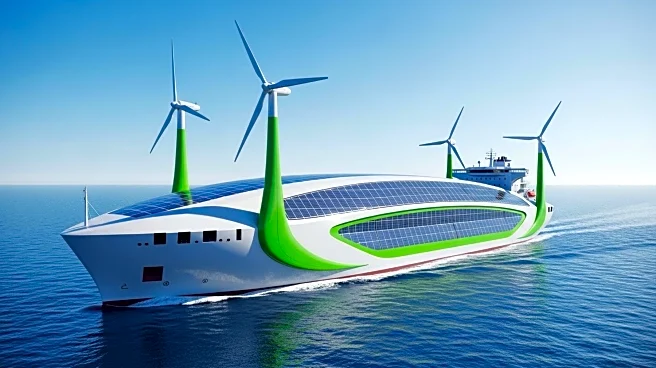What is the story about?
What's Happening?
The shipping industry is at a critical juncture as it seeks to achieve net-zero emissions by 2050, according to an op-ed by Isabelle Ireland, Head of Corporate Operations at InterContinental Energy. The industry requires giga-scale renewable energy projects to provide affordable green fuels at scale. The upcoming vote at the International Maritime Organization (IMO) in October will determine the regulatory framework needed to accelerate the energy transition. Large-scale projects, such as InterContinental Energy's Western Green Energy Hub, are essential to meet the industry's ambitious decarbonization goals.
Why It's Important?
The transition to green shipping fuels is crucial for reducing the industry's greenhouse gas emissions and achieving global climate targets. Giga-scale projects offer a viable pathway to produce and distribute alternative fuels competitively. Regulatory certainty from the IMO is necessary to unlock investment and facilitate collaboration across the maritime ecosystem. The industry's ability to adapt and innovate will determine its role in the global energy transition.
What's Next?
The IMO's vote on mid-term measures in October will be pivotal in shaping the future of maritime decarbonization. Industry stakeholders, including fuel producers, ports, and shipbuilders, must collaborate to develop infrastructure and technologies that support the transition. The shipping sector must advocate for ambitious regulatory measures and commit to offtake agreements to ensure the availability of green fuels.

















